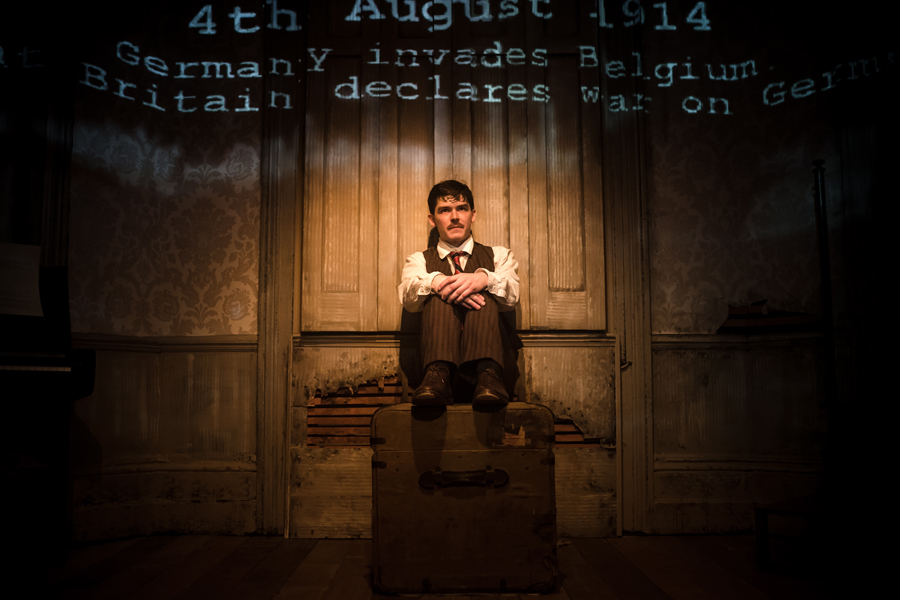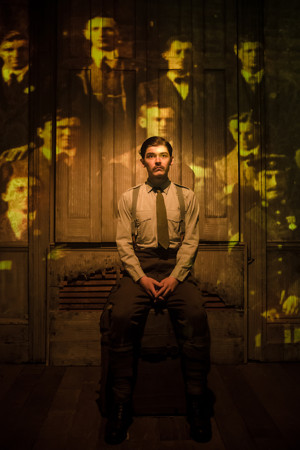Joanne Magee: Inspired through Reconnection
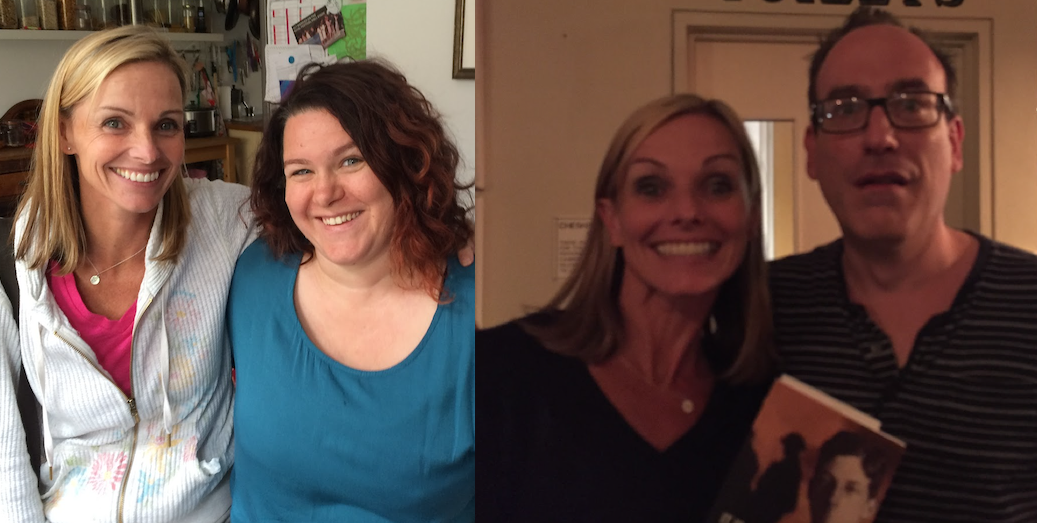
My traveling took me back to London to visit with two of my college friends. Twenty-two years after we graduated together, both are still making drama and theatre in London. My time with Neil McPherson and Vishni Veleda Billson gave me an opportunity to reconnect with old friends and to feel inspired about my own work.
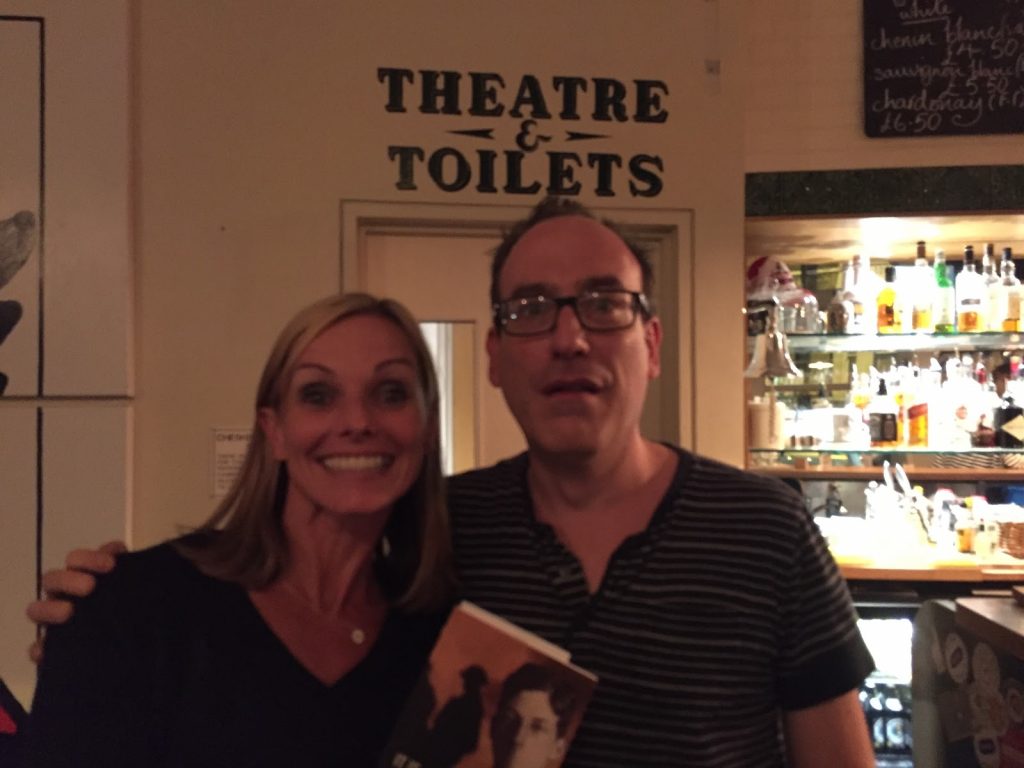 My old friend, Neil McPherson has now become the Artistic Director of the Finborough Theatre. He started writing the play“It’s Easy to be Dead” when he was in college, but like many of us, he had to put certain projects aside while life presented bigger priorities! Some 20 years later, he finally returned to his play and completed it.
My old friend, Neil McPherson has now become the Artistic Director of the Finborough Theatre. He started writing the play“It’s Easy to be Dead” when he was in college, but like many of us, he had to put certain projects aside while life presented bigger priorities! Some 20 years later, he finally returned to his play and completed it.
I had the chance to visit Neil at the Finborough Theatre, London, to see his play and catch up with him in person. We talked about his journey that started with a collection of poems by Charles Sorely that spurred the idea to write a play that evolved to include adding music and songs collected from the era, and culminated in a full production in The Finborough Theatre.
The theatre is above a pub, it seats about fifty people. It was extremely intimate. The staging of the performance was imaginative and simple, creating a variety of different moments with innovative ideas which reminded me of the type of theatre I produce at LREI. The interwoven poetry and songs evoked a time long forgotten and drew the audience into the war and into the terrors of a young man on the front lines of WW1.
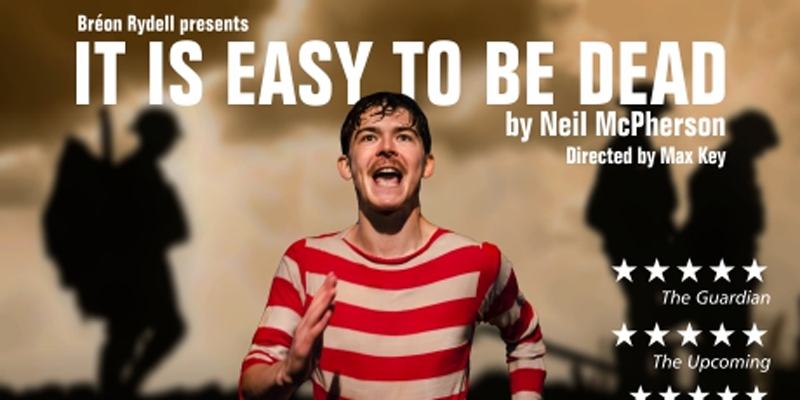 After I saw the play, I met with Neil to ask him about the process that took the play from page to stage. He told me one should never direct one’s own writing as a director interprets what they read with ideas and insights that the writer is too entrenched to see. He told me that the play was brought to life during the rehearsal process with carefully chosen actors, especially the lead, Alexander Knox ,who brought so much energy and passion to the character. I was inspired to hear how the creative process was so rich and heartfelt. I was impressed with the brilliant weaving of the story of Charles Sorley’s life, his poetry, the songs of the era and the contextual history of the first world war and the brilliance in the performances of the actors.
After I saw the play, I met with Neil to ask him about the process that took the play from page to stage. He told me one should never direct one’s own writing as a director interprets what they read with ideas and insights that the writer is too entrenched to see. He told me that the play was brought to life during the rehearsal process with carefully chosen actors, especially the lead, Alexander Knox ,who brought so much energy and passion to the character. I was inspired to hear how the creative process was so rich and heartfelt. I was impressed with the brilliant weaving of the story of Charles Sorley’s life, his poetry, the songs of the era and the contextual history of the first world war and the brilliance in the performances of the actors.
Neil’s play was so successful, it went on to the Trafalgar Studios—a larger space and similar to an off-Broadway theatre. Here is the Times review.
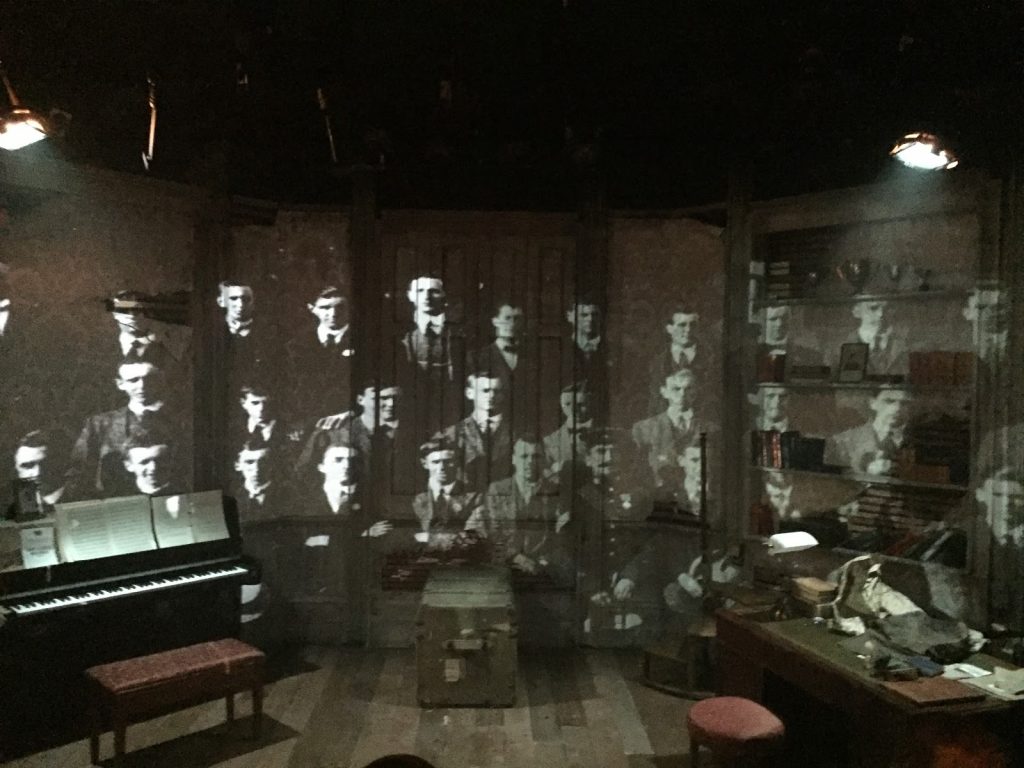
“And your bright Promise, withered long and sped,
Is touched, stirs, rises, opens and grows sweet
And blossoms and is you, when you are dead.”
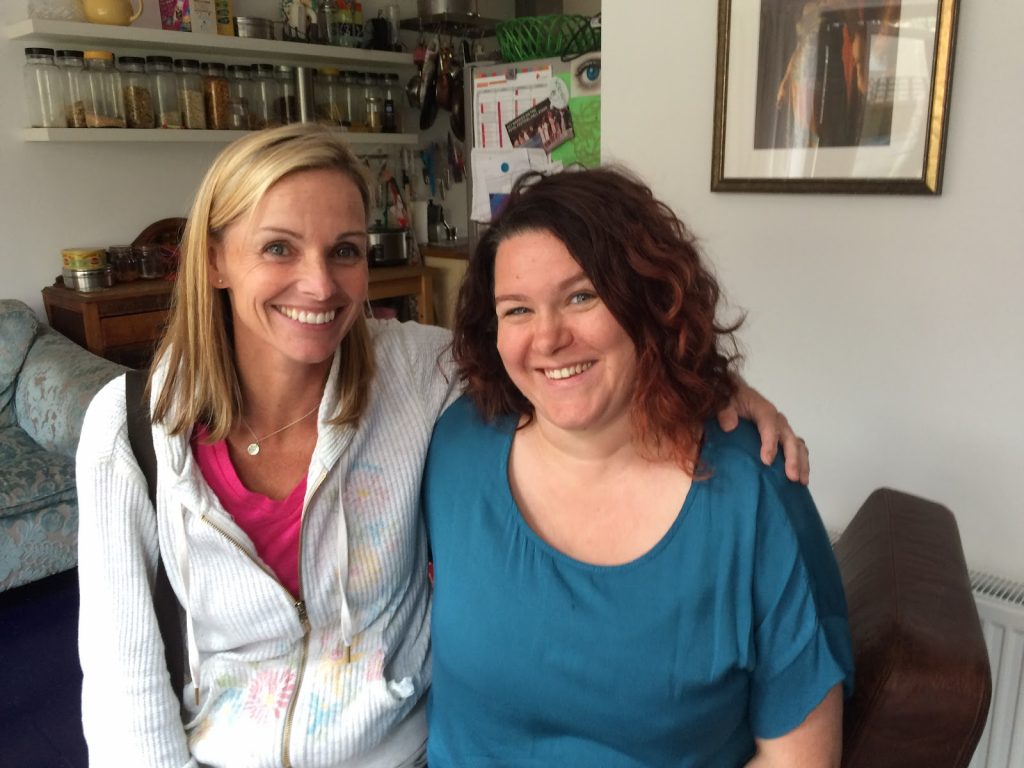 Another highlight of my grant experience occurred when I had the opportunity to work alongside my close friend Vishni Veleda Billson. She has spent many years working at a variety of theatres, (Half Moon and The Unicorn Theatre to name a few) and is now at the Royal Central School of Speech and Drama as a teaching artist and director. Vishni also works with CLEAN BREAK, which was founded in 1979 by two women who had been in prison who set up a theatre company to bring hidden stories of imprisoned women to a wider audience. As their website explains:
Another highlight of my grant experience occurred when I had the opportunity to work alongside my close friend Vishni Veleda Billson. She has spent many years working at a variety of theatres, (Half Moon and The Unicorn Theatre to name a few) and is now at the Royal Central School of Speech and Drama as a teaching artist and director. Vishni also works with CLEAN BREAK, which was founded in 1979 by two women who had been in prison who set up a theatre company to bring hidden stories of imprisoned women to a wider audience. As their website explains:
“Still the only women’s theatre company of its kind, Clean Break has remained true to these roots, and we continue to inspire playwrights and captivate audiences with our groundbreaking plays on the complex theme of women and crime. Our theatre-based education and training programme is integral to our ethos. For more than three decades, we have delivered high-quality theatre-based courses, awarded qualifications and offered specialist support, all of which are critical for the rehabilitation of women with experience of the criminal justice system. Run in prisons and from our women-only building in Kentish Town, our training and education programme helps participants to develop personal, social, professional and creative skills that often lead to education and employment.”
In my time with Vishni, I discovered that “process drama” is incredibly powerful. The variety of activities they use to generate material reveals deep inner expression and establishes a unique connection between the actors. This work not only helped to define these women’s experiences, but also validated their pain and struggle and gave it a safe place for artistic expression. My experience was profoundly moving. My observations confirmed that drama is vital for human expression and connection and that the process of creating is therapeutic and liberating.
Here is the team of courageous women who allowed me to work with them while they devised a series of scenes and movement pieces revolving around the theme of “Mother”. They allowed me to take this photo despite many of them requesting that I don’t share this with anyone but my bosses! ( A ‘clean break’ is a fresh start and a new life for many of these women and that means a degree of anonymity is required.)
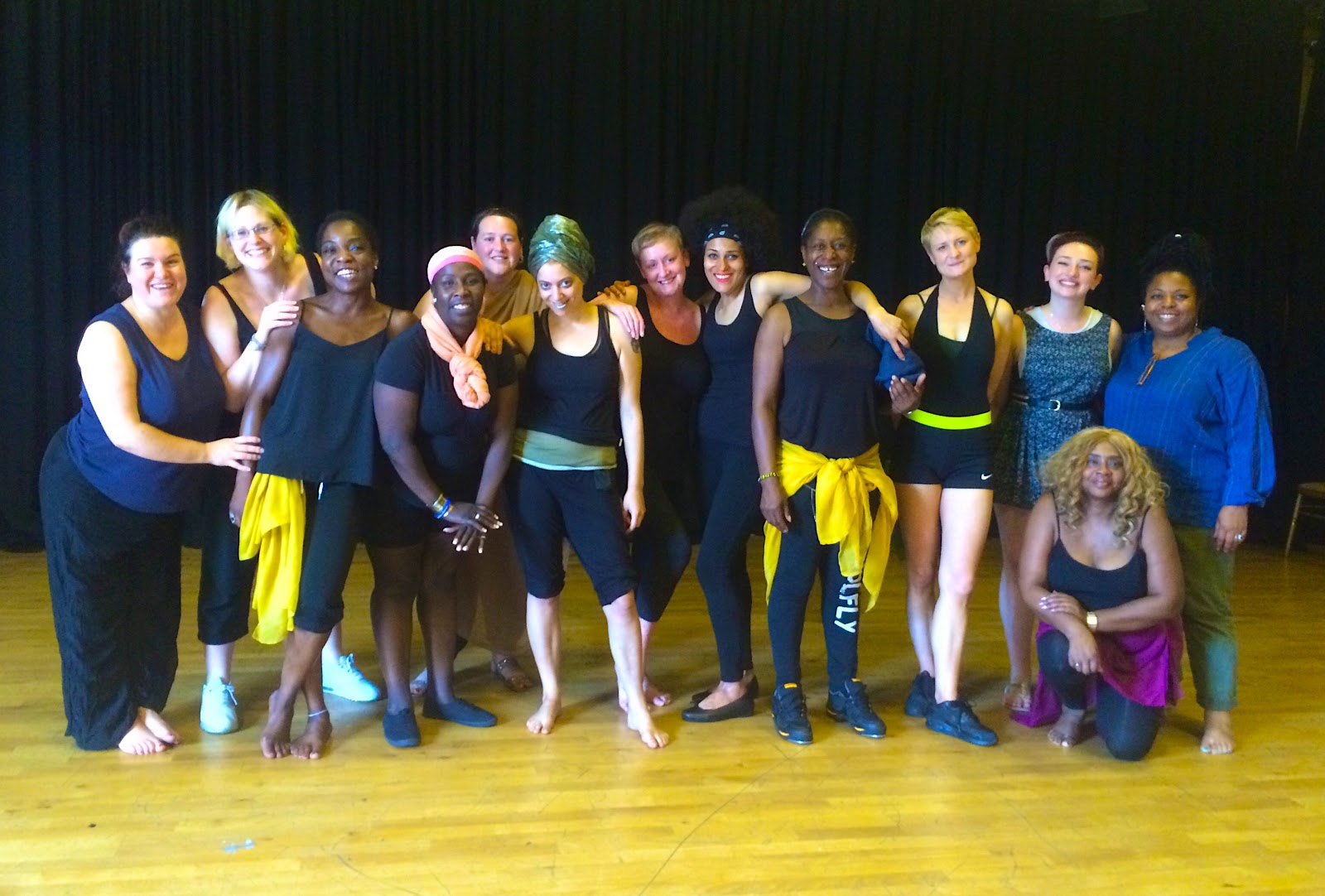
The experiences I had on my travels to London infused me with the excitement and passion that I have always found in theatre and drama. In reconnecting with my colleagues, I not only reflected on how far I’ve come in 22 years of working in theatre and education, but I was able to compare my own experiences with others, to learn through observation, discussion, and co-teaching. I was able to analyze critically a play from page to stage and to feel at home with the level of theatrical expertise that my theatre training has given me and my fellow alums. I wish I had more time to indulge in such experiences when I am working, but my schedule with 3 main stage productions a year keeps me in an intense and rigorous schedule.I am most grateful for the grant that gave me the freedom to take the time and travel to London make these connections and feel supported by my administration. While I will continue to engage in professional development during my vacations, I will endeavor to look for these kinds of opportunities throughout the year.
